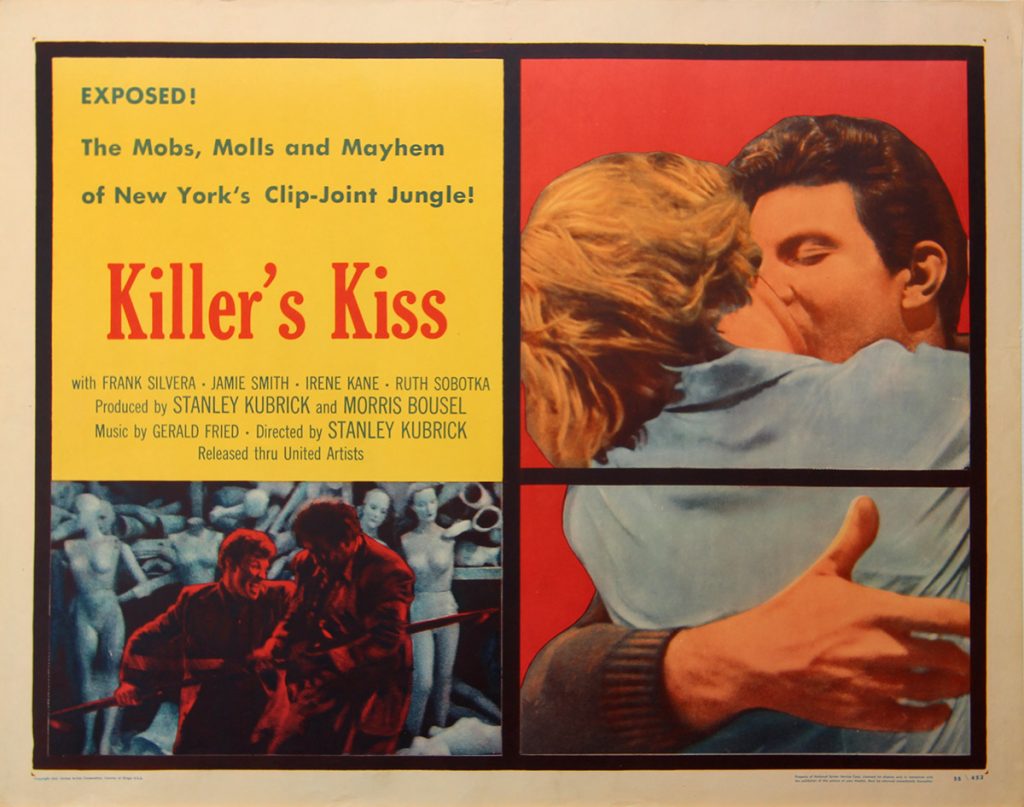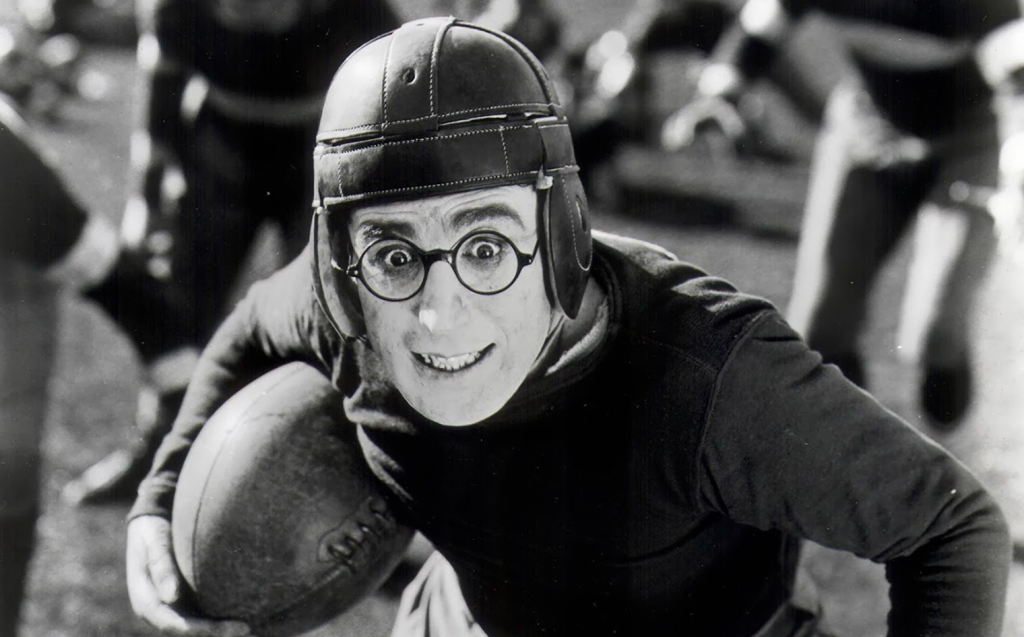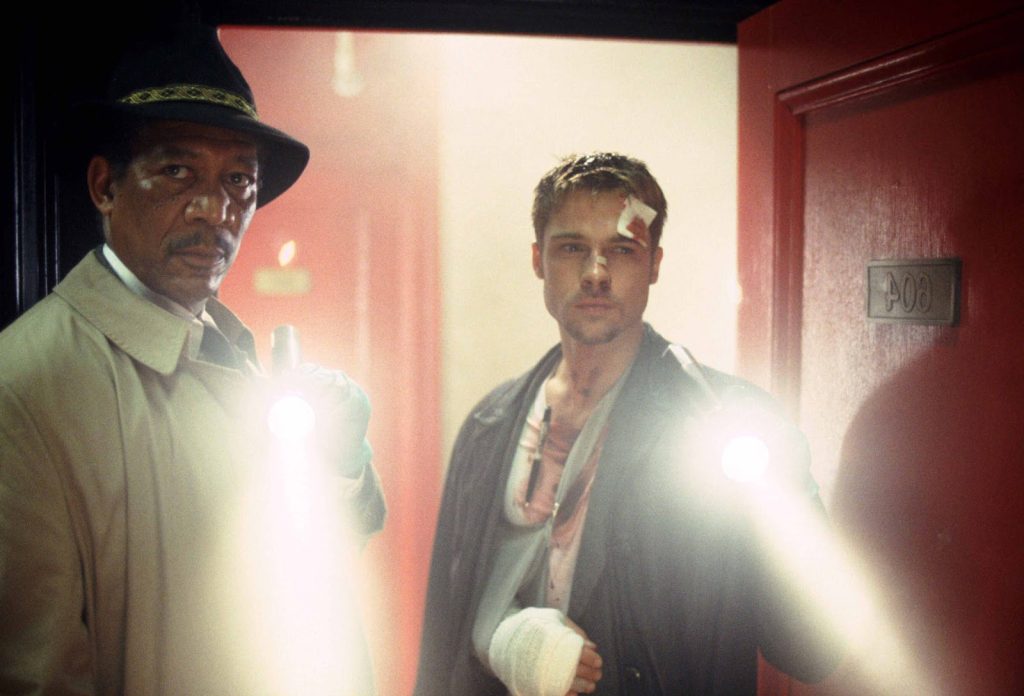This week, we’ll be focusing our posts on holiday movies, including several that we feel are worth putting into your holiday viewing rotation this year. Follow along here.
The best part of every year-end film rundown is director John Water’s pick of the top ten movies of the year, which always proves to be a surprising, eclectic and charmingly perverse list of titles. You’d expect nothing less from American cinema’s beloved Pope of Trash, who has long been a champion of the kind of outer cinema that often falls through the cracks. Perhaps no film has benefited more from his spotlight than one oddball Yuletide thriller from 1980.
Per Waters, “There’s only one movie to ever watch at Christmas. It’s called Christmas Evil.”
Written and directed by Lewis Jackson, it stars Brandon Maggart as Harry Stadling, a mentally unbalanced loner who, after catching his mother and father in flagrante delicto one Christmas Eve while the later was dressed up as Santa Claus, suffers a case of Christmas-obsessed arrested development. Decades later, Harry finds himself working in middle management at a New Jersey toy factory while spending his spare time peeping on the neighborhood kids and keeping a list of which are naughty and which are nice. Harry’s descent into madness comes full circle one Christmas Eve via a simple shaving nick, which convinces him to take up the mantle of Jolly Old Saint Nick for real. His first order of business is well-meaning, if still creepy and illegal—after painting his van to look like Santa’s sleigh, he steals presents from some well-off but ungrateful families and donates them to a local children’s hospital–but soon enough, the crass commodification and sneering disdain he receives from the adults he encounters drives him fully over the edge, leading to a night-long killing spree.
Originally titled You Better Watch Out, Jackson’s film had its title changed (against his will) by producers in order to sell it as a Christmas-themed slasher film, ala Bob Clark’s genre-defining Black Christmas, it’s twisted Santa a precursor to the far more popular and controversial (although Christmas Evil still ended up on Britain’s Video Nasties list) Silent Night, Deadly Night series. This did not help commercially, as audiences and critics who expected a straight up slasher ended up confused by what they got. For though Christmas Evil does occasionally veer into horror movie territory, it is not, strictly speaking, a horror movie.
What it is is a genuinely unsettling and transgressive character study about an individual’s mental collapse and quixotic quest to right the wrongs of the world through a cleansing violence. As such, it has far more in common with the likes of Taxi Driver, Ms. 45, Falling Down and other such vigilante psychodramas. Jackson also inserts overt references to Fritz Lang’s M and James Whale’s Frankenstien, which, along with a scene where Harry attempts to climb down the chimney of one of his victims only to get stuck, imbues the film with a heavy dose of black humor, as the image of Santa Claus being chased by a torch-carrying angry mob is potent bit of iconoclasm.
Without a doubt, it is an exploitation film, but it’s one made with real artistic and sociopolitical vision. Jackson took the film’s central conceit deadly seriously, and hoped his film would “broaden the myth” of Santa, taking the characters back to his moralist (and sometimes frightening) roots as developed by writer Washington Irving and political cartoonist Thomas Nast, before the CocaCola Co. got their claws into him and transformed him into the cuddly capitalist mascot he is today.

In keeping with this perspective, Jackson designed his film as a “Like a fairy tale…if one thinks about fairy tales, you can see that horrible and fantastic things happen in them.” This is particularly evident in the film’s bonkers ending, which completely turns everything that came before on its head. Suffice to say, the audience that did catch the film during its short and limited theatrical run hated the ending, which Waters, on his Vinegar Syndrome DVD commentary track, chalks up to “exploitation audiences always hav[ing] a certain trouble with surrealism.”
That surrealism is evident throughout the film, including one memorable scene where Harry walks through a quiet neighborhood lined with glowing snowmen decorations that more resemble a row of ghostly spirits or alien visitors. The direction and cinematography are consistently impressive, as are the performances. Maggart—a veteran stage actor (and the father of none other than Fionna Apple)—gives a masterful performance that is equal parts sympathetic and deeply off-putting.
The rest of the cast rises to meet him, which is initially surprising for a low budget exploitation film, until you realize just how stacked it is. While the most famous person to emerge from the cast is probably Patricia Richardson (due to her starring on the hit sitcom Home Improvement), Christmas Evil also features a murderer’s row of future character actor greats, including, as the second lead, Jeffery DeMunn (The Shawshank Redemption, The Walking Dead), Mark Margolis (Scarface, Breaking Bad), Raymond J. Barry (Walk Hard, Justified), Peter Freidman (Safe, Succession), and Bill Raymond (Michael Clayton, The Wire).
Unfortunately, for all to recommend in it, Christmas Evil was mostly reviled upon release and subsequently forgotten. Troma picked up the rights to it during a fire sale—literally, the company that owned it sold their catalog following an actual building fire—but distributed it in the wrong aspect ratio and with no input from Jackson. Eventually, he got the rights back, but the entire experience left him exhausted and unfortunately, he hasn’t directed a feature in the 43 years since.
However, thanks to the proselytizing of Waters, who first wrote about his love of the film in his 1989 book Crackpot, and whom Jackson credits as having “saved my life,” Christmas Evil has since gone on to enjoy a proper restoration and release (via that aforementioned Vinegar Syndrome edition). Its prevalence on the streaming horror channel Shudder during recent years, as well as constant acclaim from Waters via The Criterion Collection and at rep screenings, has elevated it to the level of true blue cult classic.
Christmas Evil still remains underseen and it doesn’t enjoy anywhere near the cache of other Xmas horror/thriller titles. But for originality, pathos, transgressive humor, surrealism and artistry, it absolutely takes the milk and cookies.
“Christmas Evil” is streaming on Shudder, Tubi, Night Flight Plus, and several ad-supported streaming services.



